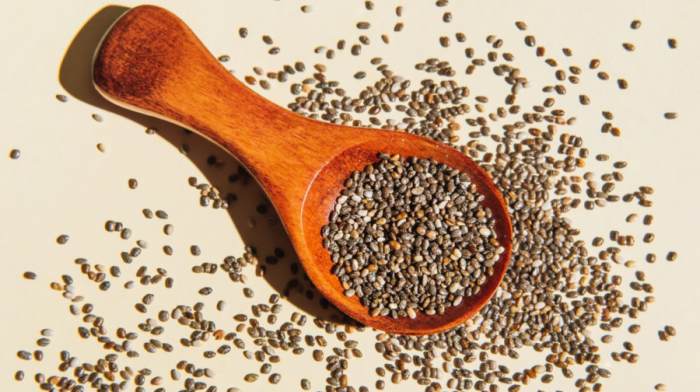Turning the big 3-0 is exciting: You’re wiser, more resilient, with many life lessons under your belt, and probably know yourself better than ever before. That said, where this decade may be less exciting is in the fact that weight loss is your 30s may not feel as easy as it did in, say, your 20s. So, how should you approach losing weight in this decade if that's your goal?
First off: Don’t buy into a narrative that you can’t successfully lose weight in your 30s, says Meghan Garcia-Webb, MD, a triple board-certified physician and founder of Weight Medicine MD. “I have so many patients that say ‘I turned X this year, and everything fell apart,' but the interesting thing is that this number is different for every person—some people say 25, others say 30 or 42," Dr. Garcia-Webb says. "But if you take a look at how you want to eat and exercise, and compare it to what you’re doing now, usually some clear reasons for the excess weight emerge.”
Weight loss in your 30s (and beyond!) is totally possible, and the experts here have sound advice to help kickstart your journey. Ahead, 10 straightforward tips for safely losing weight in your 30s, plus why it may seem more difficult to lose weight in this decade in the first place.
Meet the experts: Christopher Thompson, MD, is a professor of Medicine at Harvard Medical School and the Director of Endoscopy at Brigham and Women’s Hospital. Meghan Garcia-Webb, MD, is a triple board-certified physician and founder of Weight Medicine MD. Sue Decotiis, MD, is a triple board-certified physician and New York City-based weight loss specialist. Andre Teixeira, MD, is a board-certified bariatric surgeon and medical director at Orlando Health Weight Loss and Bariatric Surgery Institute.
Here's why it can be harder to lose weight in your 30s compared to when you were younger.
For one, your metabolism naturally slows as you age, reducing the number of calories your body burns at rest, says Christopher Thompson, MD, a professor of Medicine at Harvard Medical School and the Director of Endoscopy at Brigham and Women’s Hospital. Adults can also lose anywhere from 3 to 8 percent of muscle mass per decade after their 20s—and less muscle means fewer calories burned at rest, which can lead to weight gain over time, he explains. (That's why strength training to build muscle is *so* important!)
Reproductive hormones also start to shift in your 30s, which can cause a change in appetite, energy levels, and fat distribution, Dr. Thompson says. “Fluctuations in estrogen and progesterone levels during menstrual cycles, pregnancy, or perimenopause can cause water retention and shifts in fat storage patterns,” he adds.
Plus, for women who become pregnant in their 30s, your body adapts to store more fat for energy, and this metabolic shift can persist postpartum, Dr. Thompson says. What's more, “stress due to cultural expectations or lack of adequate support is also common in the postpartum period and can elevate cortisol levels, which is associated with increased fat storage, particularly in the abdominal area.”
So while it would be nice to point a finger at an exact reason for your stubborn weight, it’s really a combination of factors. “Weight management becomes more challenging in your 30s due to a combination of physiological, hormonal, and lifestyle changes, and together, these factors create a perfect storm for gradual weight gain if dietary and activity levels don’t adjust accordingly,” says Dr. Thompson.
10 Tips To Lose Weight Effectively And Safely In Your 30s
Safe weight loss is not a one-size-fits-all situation, and success comes from sustainable lifestyle changes that involve holistic nutrition, regular exercise, adequate sleep, and mindset shifts.
“Focus on gradual changes to your diet and lifestyle that you can maintain and avoid extreme calories deficits or rapid weight loss diets that jeopardize your health,” says Andre Teixeira, MD, a board-certified bariatric surgeon and medical director at Orlando Health Weight Loss and Bariatric Surgery Institute. “Sustainability matters—it’s one of the most important aspects of long-term success.”
As for how much weight is safe to lose at a given time, stick to one to two pounds per week, says Dr. Garcia-Webb. “Remember that it’s not a race.”
Finally, regardless of what your goals are, understand that embarking on a weight loss journey can untangle a lot of complex feelings, especially if you have a history of disordered eating, so Dr. Garcia-Webb says to find what makes you feel your best. “I love to frame weight loss as more about getting closer and closer to your ideal habits than a particular number on a scale.”
1. Prioritize protein.
“Protein is key to making sure you stay fuller for longer after a meal, which means you are less likely to get hungry and snack between meals,” Dr. Garcia-Webb says. In other words, upping your protein throughout the day improves your satiety, which can limit overall calorie consumption, she explains. Clinical trials have also found that a high-protein diet may help you lose weight and even potentially keep it off, since protein boosts the calories your body burns during digestion, per a 2020 study published in the Journal of Obesity and Metabolic Syndrome.
Individual protein needs vary, but Dr. Garcia-Webb recommends aiming for 1 to 1.2 grams of protein per kilogram of body weight per day, ideally spread out, with roughly 20 to 30 grams at each meal (and more with snacks, if needed). So, for a 30-year-old woman who weighs 150 lbs, or 68 kilograms, they would need around 82 grams of protein a day. (FYI: Your weight in pounds ÷ 2.2 = your weight in kilograms.)
2. Fill up your plate with fiber-packed fruits and veggies.
Not only are fruits and veggies full of healthy vitamins and minerals, but they’re loaded with fiber which can help support gut health, slow digestion, and regulate appetite by promoting feelings of fullness, so most adults should aim for at least 25 to 30 grams of fiber daily, Dr. Thompson says.
Fresh produce is also lower in calories, which can help reduce your overall caloric intake at each meal, helping to promote weight loss, Dr. Thompson explains. Studies even consistently show that an increased consumption of fruits and veggies is linked to weight loss in women.
To help keep you on track, Dr. Garcia-Webb recommends aiming for five to seven servings of fruits and veggies per day. “Ideally, these are as minimally processed as possible—so think apple slices, not applesauce or apple juice,” she explains. “When fruits and vegetables are more processed, this tends to extract much of the fiber, which is key to helping us stay full and maintain a stable blood sugar level.”
3. Read food labels and cook at home.
While it can be helpful to keep an eye on your caloric intake and macronutrient consumption, Dr. Thompson says it’s especially important to read food labels so you know exactly what you’re eating—even if something is marketed as “healthy.” In particular, you want to avoid artificial sugars, oils, and processed ingredients, he says.
In the same vein, do your best to prioritize cooking at home to eliminate hidden fats, sugars, and processed ingredients that aren’t explicitly listed on a menu.
4. Commit to strength training.
Resistance training has a huge impact on your metabolism and fat burning capabilities, so it’s worth incorporating strength training at least two to three times a week, Dr. Thompson says. Strength training with dumbbells, resistance bands, and/or weight machines also builds and maintains muscle mass, which helps increase your resting metabolic rate (that is, the number of calories your body burns while you’re completely still and at rest), enhancing your ability to burn fat and lose weight long-term, he adds.
Just know that because strength training builds muscle, you may notice little or even no overall weight change, even though you are losing fat.
5. Get your steps in.
Walking increases the amount of calories you burn throughout the day, contributing to your total energy expenditure, but it’s also key for mobility and anti-inflammatory responses that have long-term impacts on your weight.
Dr. Thompson says to aim for 7,000 to 10,000 steps a day, but getting out for even just 30 minutes can have a positive impact on weight loss efforts. “Be as active as you can be,” says Sue Decotiis, MD, a triple board-certified physician and New York City-based weight loss specialist.
6. Eat mindfully and consider your snacking habits.
Snacking on its own isn’t bad, but Dr. Decotiis says to be mindful of what you’re snacking on and how much you have. “Consistent snacking throughout the day spikes insulin and makes it harder to burn fat,” she says. Insulin is what’s in charge of hunger and fat storage, so lowering insulin levels is crucial for weight loss and weight management.
Instead of mindlessly grazing on refined carbs like chips, cookies, and crackers (that won’t keep you full anyway), Dr. Decotiis recommends focusing on balanced meals and only snacking on fruits, veggies, and high-protein options when you need an extra boost.
7. Shift your mindset and identify a Why that will motivate you.
Mindset management is often the golden ticket to long-term success, so establish a goal that’s realistic for your lifestyle and stick with it, Dr. Garcia-Webb says. “Work on building this vision, because if you don’t know what you’re aiming for, you’ll never find it.”
Ask yourself why weight loss important to you, and what you stand to gain in your life (better energy? the ability to keep up with your kids?) by going after this goal. “Remember that you are 100 percent in control of your time and what you do,” says Dr. Garcia-Webb. “It may not seem that way, but you have a lot more control over your schedule than you think.” Read: When you really care about a goal, you will make it more of a priority in your hectic life—even if that means making other sacrifices to make time and space for it.
8. Hydrate, hydrate, hydrate.
When you’re dehydrated, it’s possible to mistake thirst for hunger, so it’s imperative to drink a minimum of 11.5 cups (or 2.7 liters) of fluid a day. Research also shows that increased water intake can suppress your appetite and stimulate your metabolism.
Not a fan of plain water? Opt for sparkling water with a squeeze of fresh lemon or lime juice.
9. Reduce stress as best you can and protect your sleep.
If your schedule is packed with family, friends, and work, your stress levels are probably through the roof. And the stress hormone, cortisol, can actually cause your body to store fat rather than burn it, ultimately making weight loss much harder, so Dr. Teixeira recommends managing stress as best you can. Stress can also lead to increased hunger hormones, so try incorporating relaxation techniques like yoga, meditation, and journaling, he says.
Sleep is another nonnegotiable because a lack of shuteye promotes an increase in leptin and ghrelin, your hunger hormones, which can trigger late night snacking and sugar cravings, in turn, upping your daily caloric intake, says Dr. Teixeira. So do your best to get at least seven to nine hours of sleep per night, he says.
10. Don't underestimate the importance of consistency over perfection.
“Consistency is key, so my biggest recommendation is to eat foods you love and find exercises you like to do,” Dr. Decotiis says. “You don’t have to eat dry chicken, so experiment with food and flavor, cook with new spices and herbs, and love what you eat so it doesn’t feel like torture or a punishment.”
As for exercise, find a workout program you enjoy (check out the Women’s Health Workout Finder Tool), go on weekly walks with friends, or commit to a fun fitness challenge.
After all, there are no quick fixes or magic bullets when it comes to losing weight, so it’s better to build a foundation for long-term health, says Dr. Thompson. “Remember, the goal should be achieving a weight where you feel strong, energized, and confident, rather than chasing arbitrary numbers on a scale.”





















Comments (0)